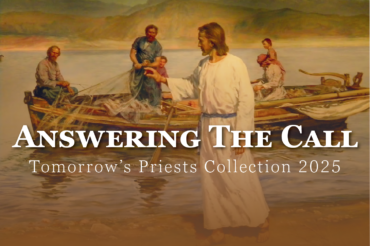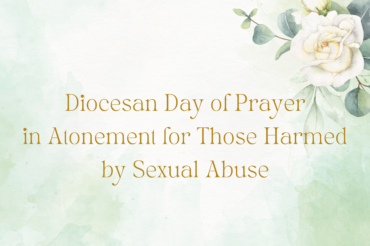Praying for Enemies
“My commandment to you is: love your enemies, pray for your persecutors.” Mt 5:44
As we offer our prayers of intercession for the victims of Hurricane Harvey and Irma, we are reminded too of the need for prayers of petition in our world. Many of the headlines of late have been dominated by the threats of North Korea and its dictator, Kim Jung Un. This past week also marked another anniversary of the September 11 attacks in 2001 and an increased awareness of how the potential for terrorist attacks has created a new normal in our world. Although these threats from enemies dominate our thinking and absorb many of our resources, while national leaders and diplomats do their important work, it is important for us Christians to remember our important role as well. We must pray for those who present themselves as our enemies. We must seek divine assistance for the seemingly intractable problems that face the world and its future.
Too often we can get caught up in the events and think that these serious matters will only be resolved through human means: politics, trade embargos, counter-threats and sanctions, and even war. These are the options human beings consider when dealing with such matters. Jesus commanded his disciples to do something radical: “fight” one’s enemies by loving them, and praying for them. Jesus not only taught this, he showed us what he meant on the cross. Saints have followed his example, beginning with Saint Stephen, whose prayer recorded in Acts at his martyrdom mirrors that of Jesus’ (cf. Acts 7:60).
Loving one’s enemies does not mean minimizing or overlooking the evil they may commit. Rather, it means a desire for the good of all, a conversion of heart, a change in the other for the good. Saint Paul serves as a good example. As Saul, he was an enemy of the early Church and carried out persecution with zeal, assuming responsibility for the death and imprisonment of many followers of Jesus. But Saul changed. Did the prayers of those he persecuted have a role in his conversion? Did Saint Stephen’s prayers for his persecutors, including Saul, contribute to his enemy becoming a brother? My sense is that they did.
In these days in which world leaders possess weapons which can annihilate millions of people in a split second, let us recall the role that we play as members of the Body of Christ in our world. We are referred to as “salt” and “light” for the world (Mt 5:13-16). Jesus reminds us that we can provide something the world cannot provide for itself and something it needs to survive. We bring the power of God’s love into the problems which seem to have no earthly solution. We commend them to the power of God’s mercy through our prayer, fasting, and sacrifices.
In this centennial year in which we recall Mary’s messages at Fatima to pray for the end of the influence of evil on a global scale, we are reminded to pray for an end to the many dangers posed by those threatening the peace of the world today. Let us pray for our enemies and ask God to unleash a “spiritual hurricane” of Divine Mercy on our world and everyone in it.
Most Sacred Heart of Jesus, make our hearts like unto yours!
+ Bishop James V. Johnston, Jr.
Catholic Key, September 15, 2017 issue





